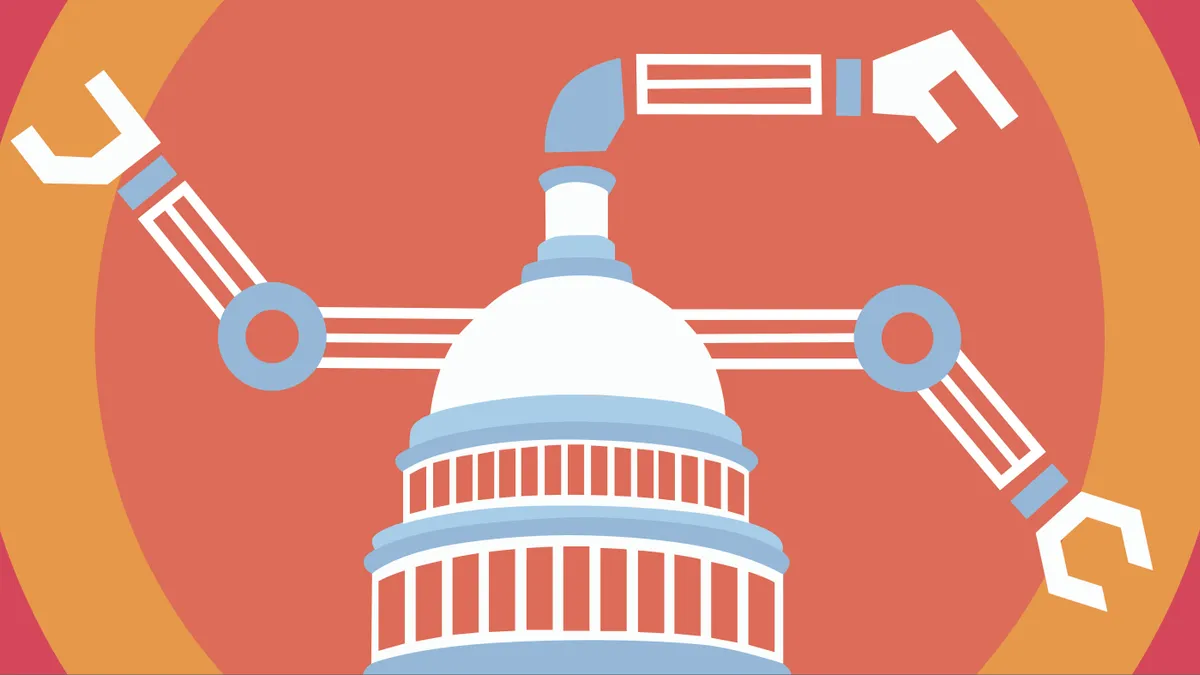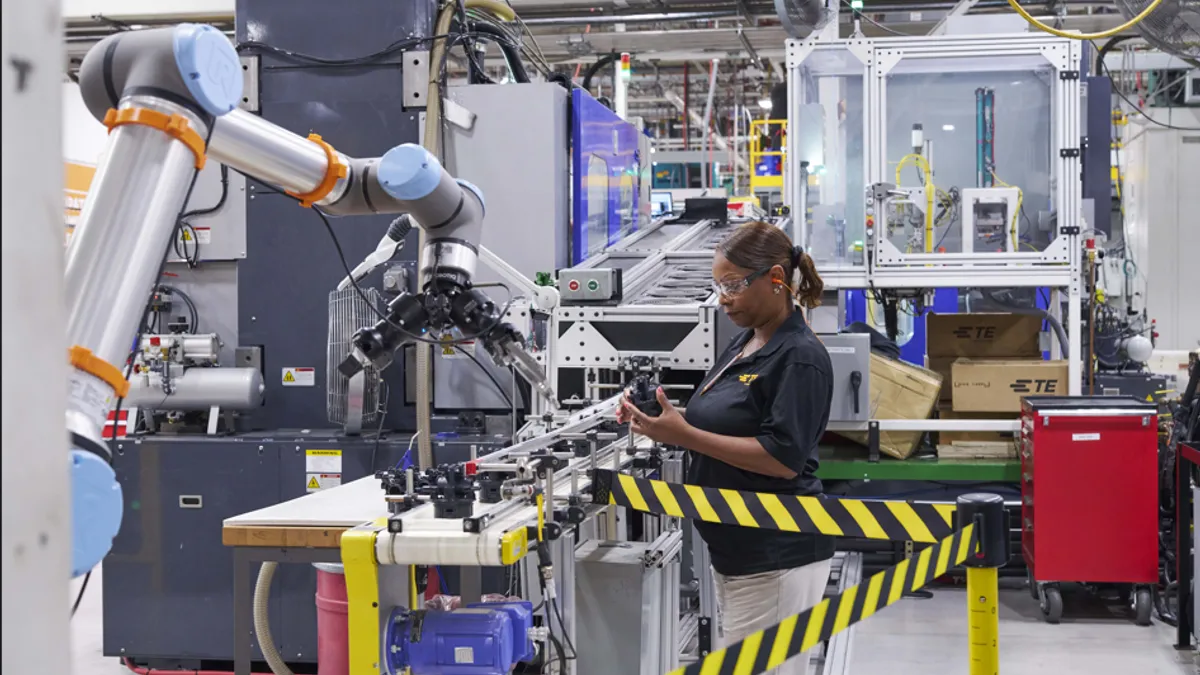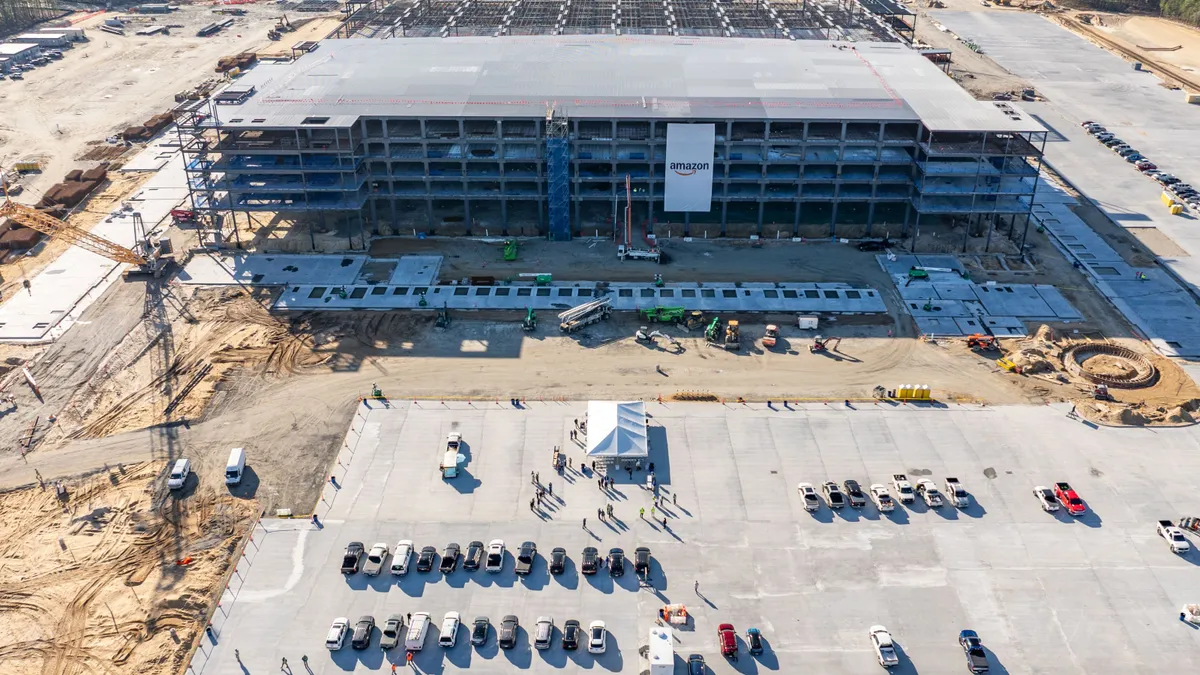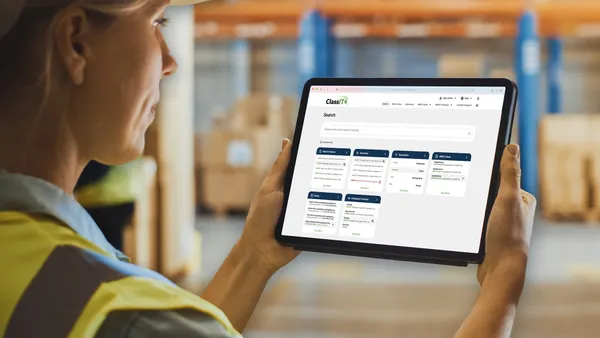Editor's Note: The following is a weekly column covering technology and regulation within the supply chain and logistics industries.
White House tells tech companies it won't regulate AI ... for now
At an artificial intelligence (AI) summit hosted by the White House Thursday, White House science adviser Michael Kratsios told a tech audience — including the likes of Amazon, Facebook, Google and Microsoft — the federal government won't hurry to regulate AI, but it is interested in exploring the tech for federal agency use, Bloomberg reported.
The Reaction: As more and more supply chains implement AI to improve demand forecasting, inventory management, automation and other supply chain processes, the federal government's non-interventionist position toward the technology likely brings some peace of mind.
But that doesn't mean federal agencies aren't paying close attention. The National Transportation Safety Board (NTSB) is still investigating Tesla crashes involving the vehicles' Autopilot function, and if certain AI use cases cause too many problems, companies using the tech could face heavy regulatory scrutiny.
Companies along the supply chain may feel freer to experiment with AI, but shouldn't forget the government is — literally — watching.
Former NSA, CIA directors want more private sector data
At the Institute for Supply Chain Management's (ISM) conference earlier this week, Shefali Kapadia reported that former NSA and CIA directors think the private sector should share more data with the government in order to fight hackers.
As cyberattacks on private and public companies increase, supply chain companies should realize they can't fight cyber crime alone, former NSA director Keith Alexander said.
The Reaction: Alexander's proposal is a nice sentiment, but the NSA asking the private sector for more data is a bit like a mother asking her child to go to bed on time. You can ask nicely, but both parties know you can coerce compliance or get what you want without compliance.
The NSA's track record with handling private information isn't stellar, so if government agencies really want to partner with private companies to prevent cyberattacks, they're going to need a more convincing argument — and they'll probably tap your phones anyway.
Furthermore, supply chain companies are actually perfectly capable of addressing cyber crime on their own. Most companies who experience bad hits are those with outdated, legacy security systems, and there's plenty of new tech — blockchain, for example — that can help companies get on the right track.
Maersk, UPS explain blockchain's uses to House subcommittee
Industry leaders including Maersk, UPS and the Sweetbridge Blockchain Alliance gathered before the House Subcommittees on Oversight and Research and Technology to discuss how blockchain might be leveraged in the supply chain to "improve management and combat counterfeit goods."
Both Maersk and UPS offered synopses on their current blockchain projects, and baby goods manufacturer Luv N' Care described how it was using blockchain to combat counterfeits in its supply chain.
The Reaction: Testifying to a committee — or a subcommittee in this case — is the first step toward blockchain regulation, so Congress' interest suggests companies are serious about blockchain adoption.
Sweetbridge CEO Scott Nelson told Supply Chain Dive in an email that "in terms of research and development, it is still quite early on in the blockchain world," which in the context of the survey finding that 1% of CIOs have adopted blockchain and most aren't interested in adopting in the future, suggests blockchain hasn't yet gained the trust of the business community.
Blockchain definitely hasn't won over the biopharma industry, as revealed by a research event hosted by the Center for Supply Chain Studies at Johns Hopkins University last week.
Meanwhile, the U.S. government isn't the only one looking into blockchain use cases. The Dutch Ministry of Economic Affairs and Climate Policy has commissioned the Dutch Blockchain Coalition to create a research agenda to address three key areas: trust, sustainability and governance of blockchain, according to Cointelegraph.
In case you missed it
Ten local authorities with their private partners were selected by the U.S. Department of Transportation to conduct drone pilot programs. Meanwhile, delivery robots are headed to Washington, D.C. after the district's city council passed a bill to allow further deployment.
Walmart bought a majority stake in Flipkart, expanding its e-commerce presence, Reuters reported. In Sweden and Norway, Volvo Cars and Volvo Trucks will use Internet of Things (IoT) tech to share live traffic information and optimize routes, monitor maintenance, improve safety and track driver hours of service.
In the U.S., the trucking industry is still divided over whether drivers under the age of 21 should be allowed haul loads across state lines.
Looking ahead
Later today, President Trump will deliver a speech about lowering prescription drug prices, targeting drug supply chain operations, according to Reuters.






















